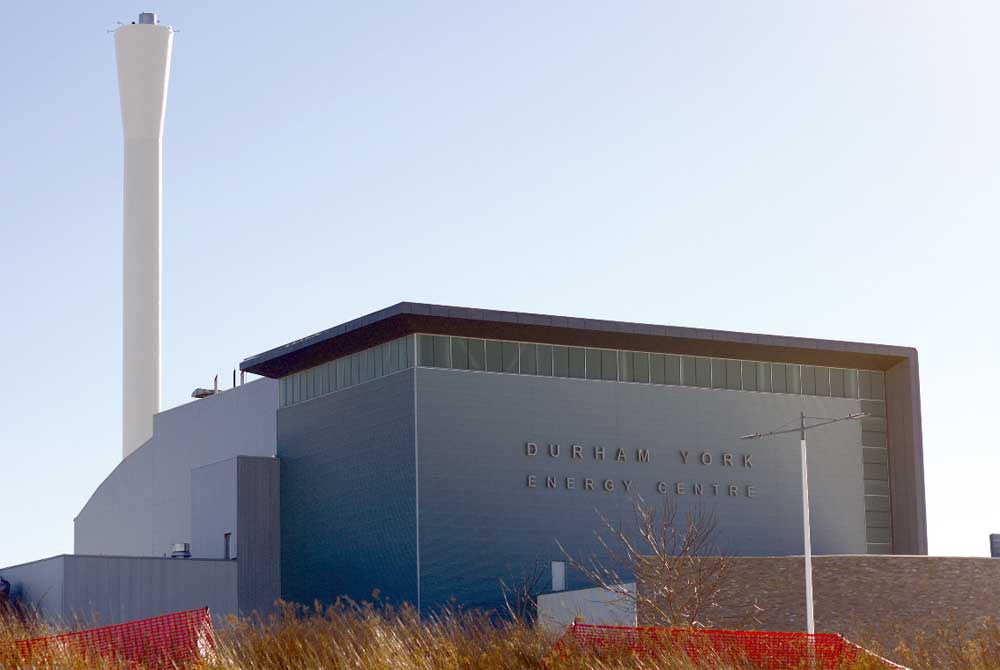Region to release closed meeting documents
Portions of reports from closed-door incinerator meetings set to be made public

Portions of confidential reports from closed meetings in December 2015 and January 2016 are set to be made public. This comes after an investigation into those two meetings, both of which dealt with the Durham York Energy Centre, found that “major portions” of them did not need to be held behind closed doors.
By Graeme McNaughton/The Oshawa Express
Residents will soon get a chance to see some of the documents viewed by councillors in a series of meetings closed to the public.
A report presented at the meeting of regional council on Sept. 14 found that two meetings held by the region, one in December 2015 and another this past January, regarding the Durham York Energy Centre had breached the open meeting requirements of the Municipal Act.
Now, redacted versions of the documents and reports presented in those meetings to councillors will be made public.
The brunt of the documents would come from the Jan. 27 committee of the whole meeting. At that time, councillors considered two documents, one of which was marked as confidential. When councillors reconvened into a regional council meeting, they passed a number of recommendations based on the two reports. The recommendations from the second report, COW-2: Confidential Report Regarding the Durham York Energy Centre (DYEC) Construction – Proposed Resolution Update Report – was not made public until after councillors approved them. It was these recommendations that led to the contract between the region and Covanta, the incinerator’s operator, being amended and the incinerator given its certificate of approval shortly after.
The December meeting saw a verbal update from Cliff Curtis, the region’s works commissioner, on the status of the incinerator’s acceptance testing. A few days after that meeting, the region announced that the incinerator would not be receiving its certificate of approval due to producing too much ash. The issue of ash production was one of the facets of the contract that was amended following the January meeting.
Speaking to councillors, Roger Anderson, the regional chair, said that the documents from those two meetings would go to the region’s legal team to see what can and cannot be made public.
Matt Gaskell, the region’s commissioner of corporate services, told The Oshawa Express that the documents should be made public in “the next couple of weeks.”
The commissioner says that while he is not happy with the report’s findings, the region will be working to ensure that such a thing does not happen again.
“I was somewhat disappointed with the findings, but we understand from their perspective and their opinion. We’re going to learn from it and we’re going to move forward and do what we can to ensure that, as much as possible, the proceedings of council are dealt with in open session,” he says.
“There are always going to be times where some things cannot be, and there will be times where some people do not agree with that decision and as lawyers, we try and balance the desire for openness and transparency against our obligations to protect and advise the corporation, and to protect the taxpayers of the organization.”
Gaskell says one of the ways that the region has dealt with the openness of its meetings is the closed meeting protocol, approved by regional council in April. The new set of rules brings with it some changes to when and how how the region conducts closed door meetings.
“What was new in the protocol, prior to that, we would typically just have a practice where we’d either have open reports or have completely confidential reports. That was historically the approach,” he says.
“What we have done in the protocol, and modeled after what some other municipalities have done…is provide some options so that, as much as possible, we minimize what is dealt with (in closed session) and those options include having confidential appendices to open reports, having companion reports that provide as much information as possible in the open session. We’ve tried to educate and sensitize the staff that we will err as much as possible on the side of openness and transparency.”
